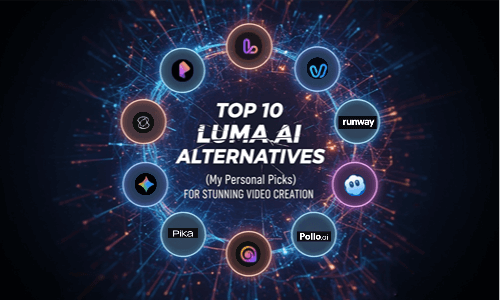If you've been experimenting with 3D capture or AI video tools recently, then you might heard of Luma AI. It's famous for its NeRF technology that turns photos into realistic 3D scenes. Although Luma is impressive, I personally found it limiting in certain creative scenarios — especially when I needed faster rendering, more visual control, or richer storytelling capabilities.
So I went down the rabbit hole and tested lots of Luma AI alternatives to find tools that either match or outperform Luma in 2026 . After weeks of testing, here are my top 10 Luma alternatives, each with real, hands-on impressions. You can also check out some great Sora 2 alternatives that offer similar features and performance.
| Tool Name | Best For | Generation Time | Pricing Plan | Watermark Status | Rating |
|---|---|---|---|---|---|
| LumeFlow AI | Cinematic AI videos & creative storytelling | ~30–60 seconds | Free: 15 coins. Paid: $4.99/month (500 coins) → up to 60 videos, $9.99/month (1,300 coins) → up to 160 videos. | ✔ No watermark | ⭐⭐⭐⭐⭐⭐ |
| Pixverse AI | Camera motion & film composition | ~40–80 seconds | Free: 60 credits/day. Paid: $8/month (1,200 credits) → up to 60 videos, $24/month (6,000 credits) → up to 300 videos. | ✔ No watermark | ⭐⭐⭐⭐⭐ |
| Vidu AI | Smooth UI & creative consistency | ~30–90 seconds | Free: 20 coins & 5 coins/day. Paid: $8/month (800 credits) → up to 200 videos, $28/month (4,000 credits) → up to 1000 videos. | ✖ Watermark (free) | ⭐⭐⭐⭐⭐ |
| Kling AI | Long high-quality video scenes | ~1–2 minutes | Free: 166 credits valid for 1 month. Paid: $6.99/month (660 credits) → up to 33 videos, $25.99/month (3,000 credits) → up to 150 videos. | ✖ Watermark (free) | ⭐⭐⭐⭐⭐ |
| Runway | AI editing & production toolkit | ~45–90 seconds | Free: 125 credits. Paid: $12/month (625 credits) → up to 25 videos, $35/month (2,250 credits) → up to 90 videos. | ✖ Watermark (free) | ⭐⭐⭐⭐⭐ |
| Google Veo3 | Natural motion & audio realism | ~2–3 minutes | No free plan. Access via Google VideoFX waitlist. Pricing via Google Cloud AI credits. | ✖ Watermark (free) | ⭐⭐⭐⭐ |
| Sora 2 | Hollywood-quality narrative videos | ~2–4 minutes | Free for users with invite codes now. Early access through ChatGPT Plus/Team/Enterprise. | ✖ Watermark (free) | ⭐⭐⭐⭐ |
| Pika | Fun & fast video creation | ~2–4 minutes | Free: 80 credits/month. Paid: $8/month (700 credits) → up to 46 videos, $28/month (2,300 credits) → up to 153 videos. | ✖ Watermark (free) | ⭐⭐⭐⭐ |
| Pollo AI | AI character animation | ~45–70 seconds | Free: 25 credits (7-day check-in). Paid: $10/month (300 credits) → up to 30 videos, $14.5/month (800 credits) → up to 80 videos. | ✖ Watermark (free) | ⭐⭐⭐⭐ |
| Hailuo AI | Templates & beginner-friendly | ~20–60 seconds | Free: 200 credits valid for 3 days. Paid: $7.99/month (1,000 credits) → up to 83 videos, $27.99/month (4,500 credits) → up to 375 videos. | ✖ Watermark (free) | ⭐⭐⭐⭐ |
1. LumeFlow AI – Best Luma AI Alternative Overall
After testing all tools, LumeFlow AI stood out as the best Luma AI alternative. Unlike Luma AI, which focuses mostly on 3D NeRF, LumeFlow lets me generate full cinematic videos from images, text prompts, and video remixes. If I want flexibility and viral-level output, this is my go-to.
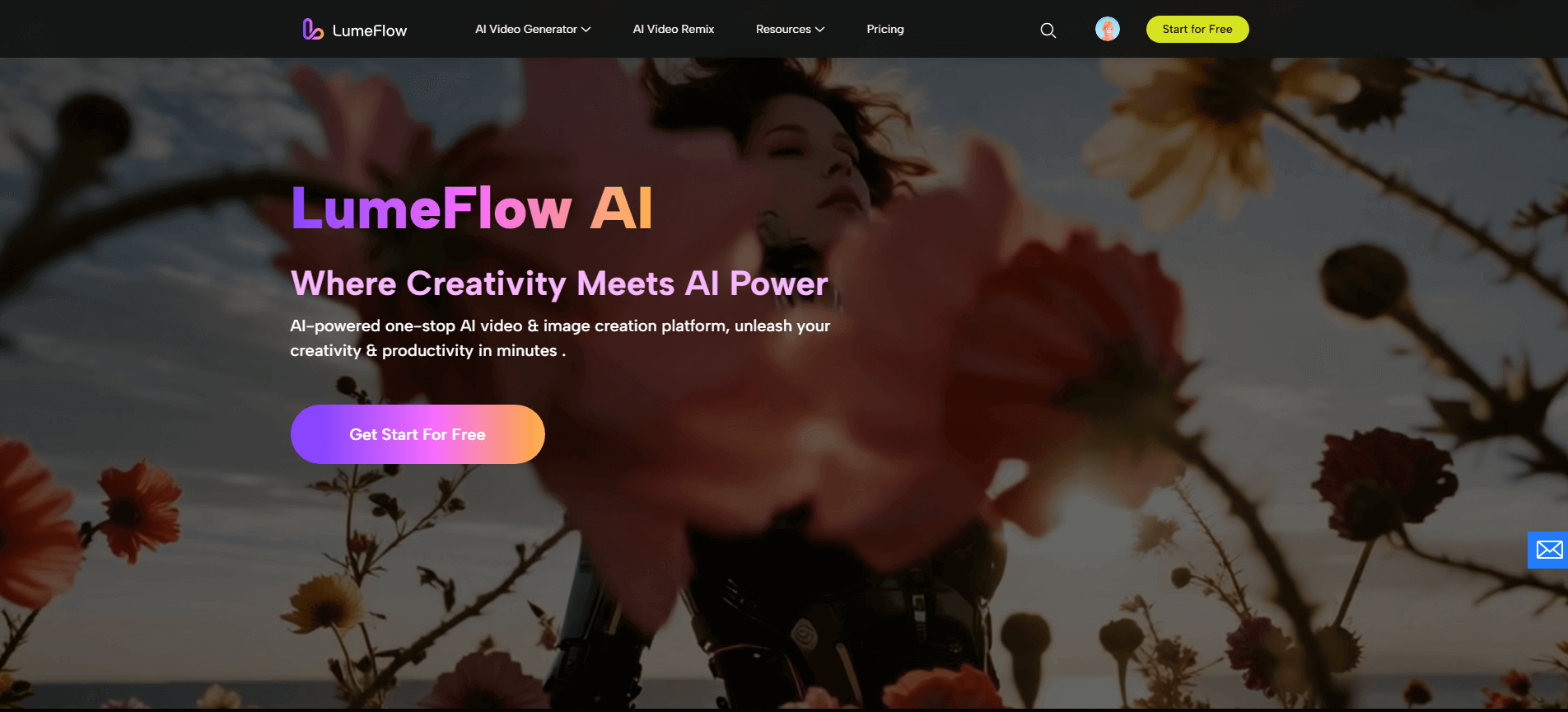
Video Remix: I found a segment on the dashboard about "Thor's Hammer Turns Into a Toy" and I thought it was quite interesting. So, I tried to use this segment to turn that clip into a video of my own idea. Surprisingly, LumeFlow actually supports direct simple video editing, which greatly saves my subsequent operations.
Image to Video: I uploaded a portrait I shot of a model in natural light. With Image-to-Video, I wanted to see if it could keep emotional expression while adding motion. In 12 seconds, I got a smooth dolly-style camera movement and realistic hair motion—no face distortions.
Text to Video: I used this prompt:"Ancient Japanese mountain village at dusk, quiet snowfall, warm lantern light, slow cinematic movement, soft film grain." Finally I got this:
The result actually gave me chills — a calm cinematic travel scene with perfect color grading. It didn't look AI-generated. It felt like a trailer from a Netflix original.
Below are two more examples I generated using different prompts:
I came across a YouTube tutorial on using LumeFlow AI, and if you're curious, you can definitely take a look:
Pros
- Consistent character motion
- Creative cinematic style options
- Fast generation & GPU boost
- Realistic lighting/shadows
Cons
- Limited free credits
- Needs clear prompts for best results
2. Pixverse AI – My Choice for Pro Creators
If your priority is control over camera movement and cinematic drama, Pixverse AI is incredible. It feels like Runway + Luma, but with better storytelling motion in videos.
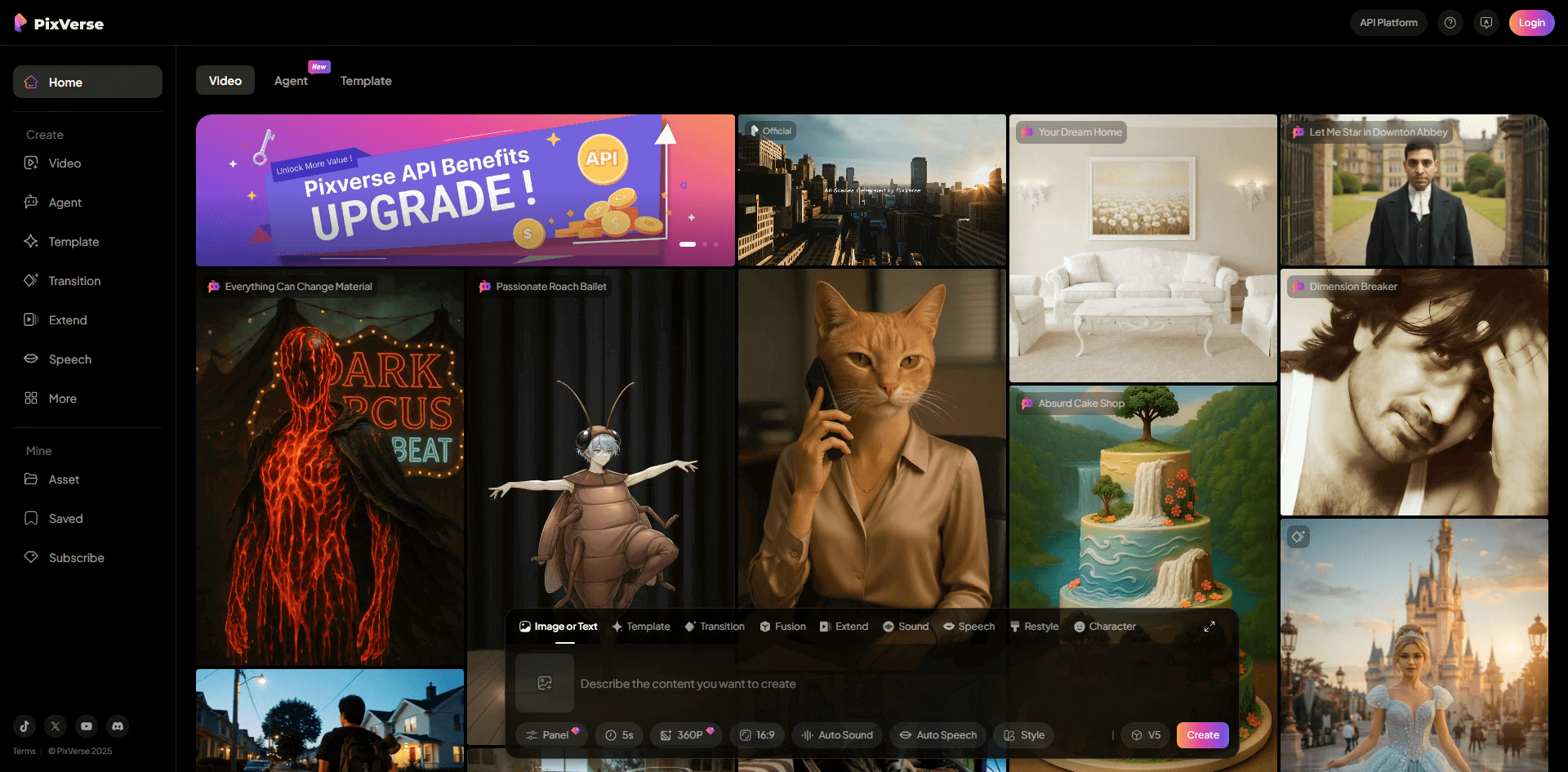
Pixverse allows custom camera paths. I tried a "push-in dramatic shot" with a warrior standing in a rainy battlefield. I adjusted the motion path manually — and the emotional impact of the shot increased instantly. Camera Path Control makes storytelling way more intentional.
Unlike tools that slap filters on top of videos, Pixverse AI styles feel like genuine cinematography. I tested "Hollywood Moody" and "Dark Sci-Fi" — both added atmosphere, depth, and volumetric lighting.
Pros
- Custom camera path control
- Sharp cinematic output
- Great for dramatic visuals
Cons
- Not ideal for casual users
- Requires creativity & patience
3. Vidu AI – My Pick for a Smooth, Intuitive Interface
Vidu AI feels like the Apple of AI video tools—clean, minimal, and intuitive.
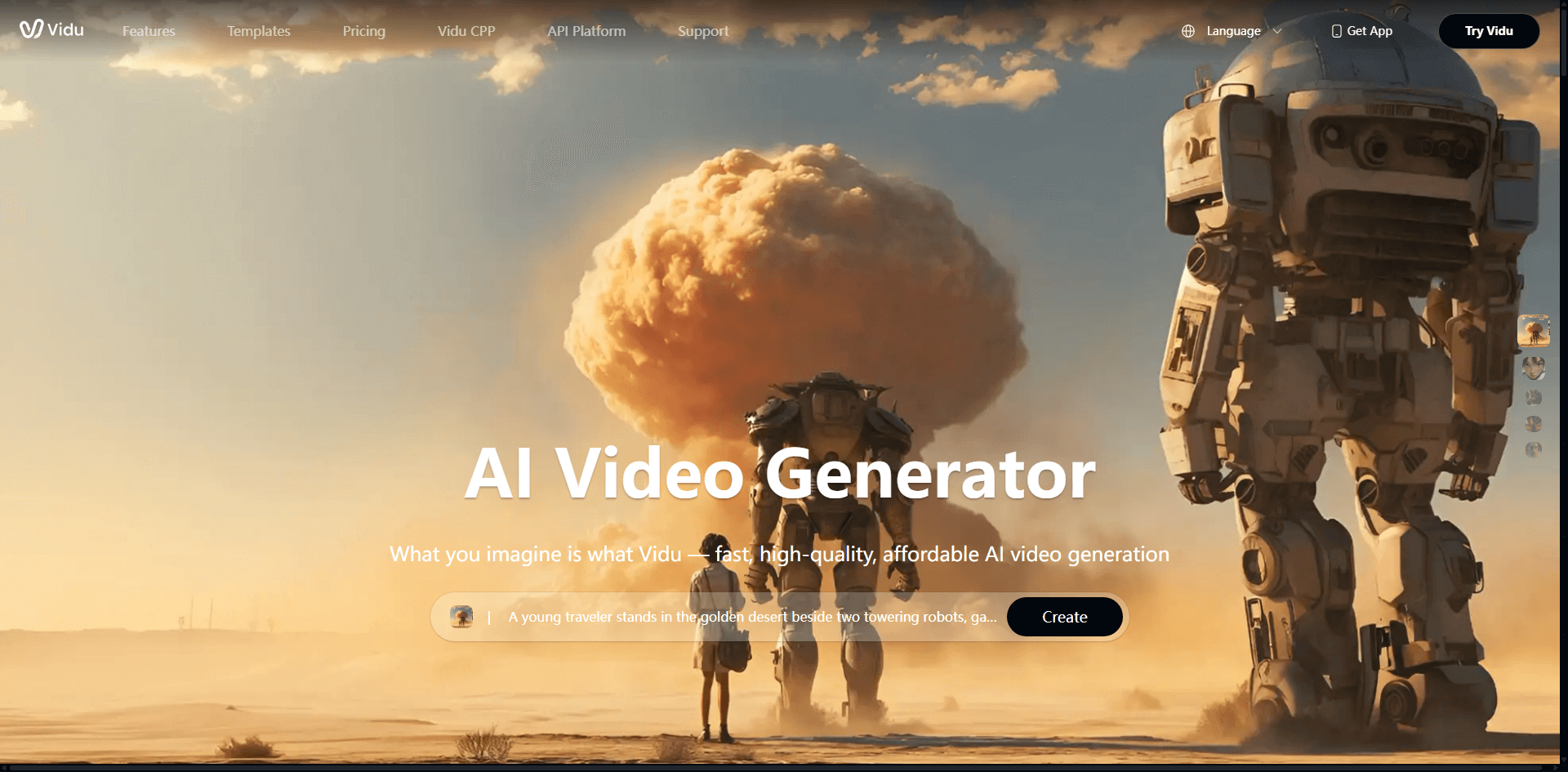
I started with a simple cinematic prompt:"Young woman standing in a quiet cafe window, rain outside, reflective mood, soft cinematic focus, shallow depth."
The result wasn't just beautiful — it had emotion. Her eyes shifted slightly, her hair moved gently with atmosphere, and the moment felt alive. It wasn't fast-paced or flashy — but it felt human.
What surprised me even more was character consistency. Unlike tools that distort faces from frame to frame, Vidu kept details stable. If you're tired of AI videos where the subject mutates mid-clip, Vidu will be refreshing.
Pros
- Super easy UI
- Professional video output
- Realistic human subjects
Cons
- Lacks camera motion control
- No remix support yet
4. Kling AI – My Go-To for Long-Form AI Video
If you need longer AI clips beyond 5 seconds, Kling delivers. It's from Kuaishou, so it's built to scale content production.
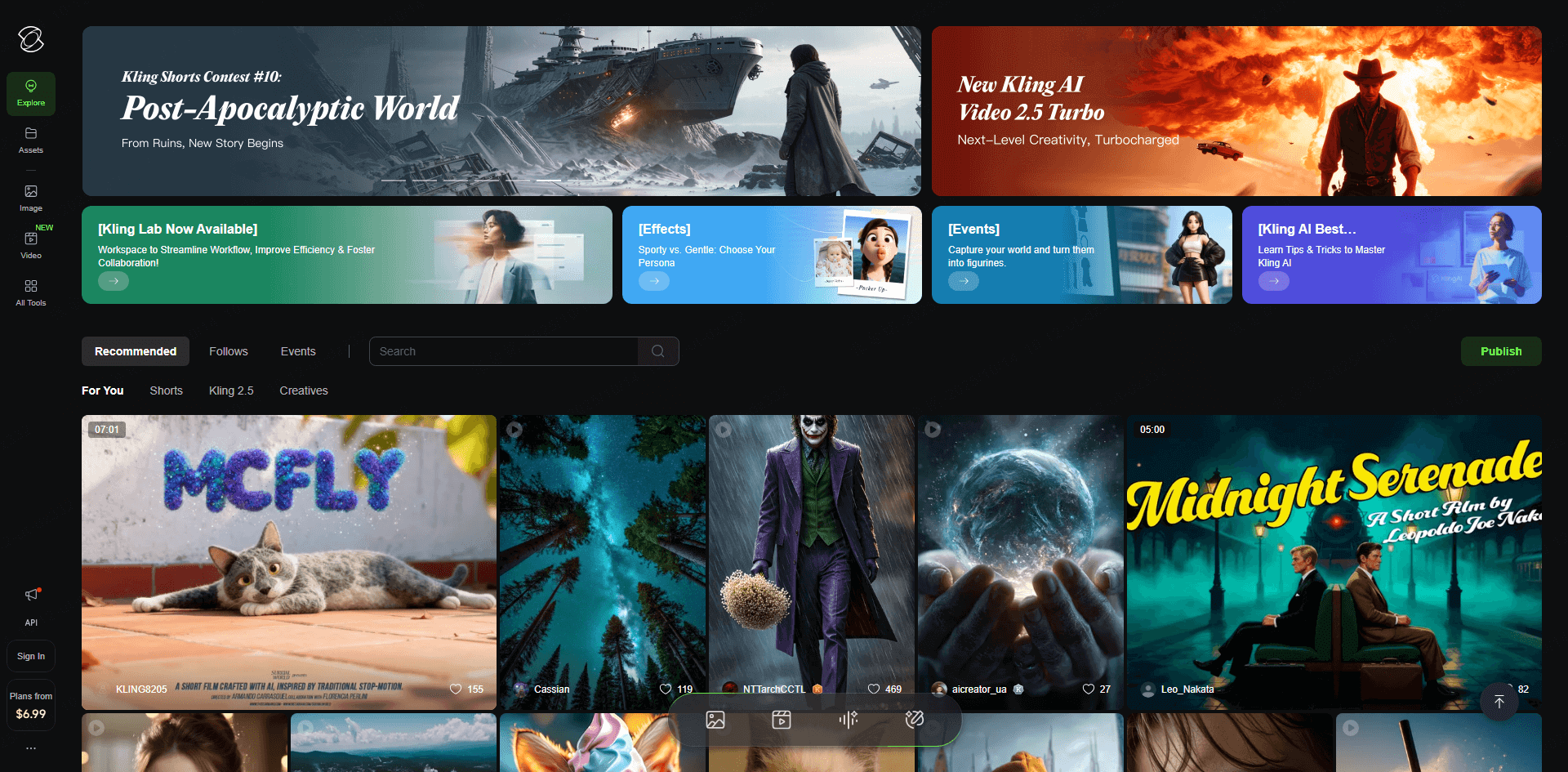
I tested Kling with a "motorcycle racing at night in Tokyo rain" scene. Not only did it nail the neon reflections—the physics of motion were accurate. The motorcycle leaned into turns realistically, and water splashed according to speed. It blew away Luma AI in realism.
Luma AI is great for 3D captures, but Kling is better for world simulation. The background never randomly shifts or melts. Buildings stayed consistent. Perspective stayed logical.
Pros
- Longest video durations
- Consistent environment
- Realistic physics
Cons
- Account approval required
- Slightly slower UI
5. Runway – Best for Creative Editing + AI Video Tools
Runway isn't just a Luma Labs alternative — it helped start the AI video wave. It has the best AI editing ecosystem.
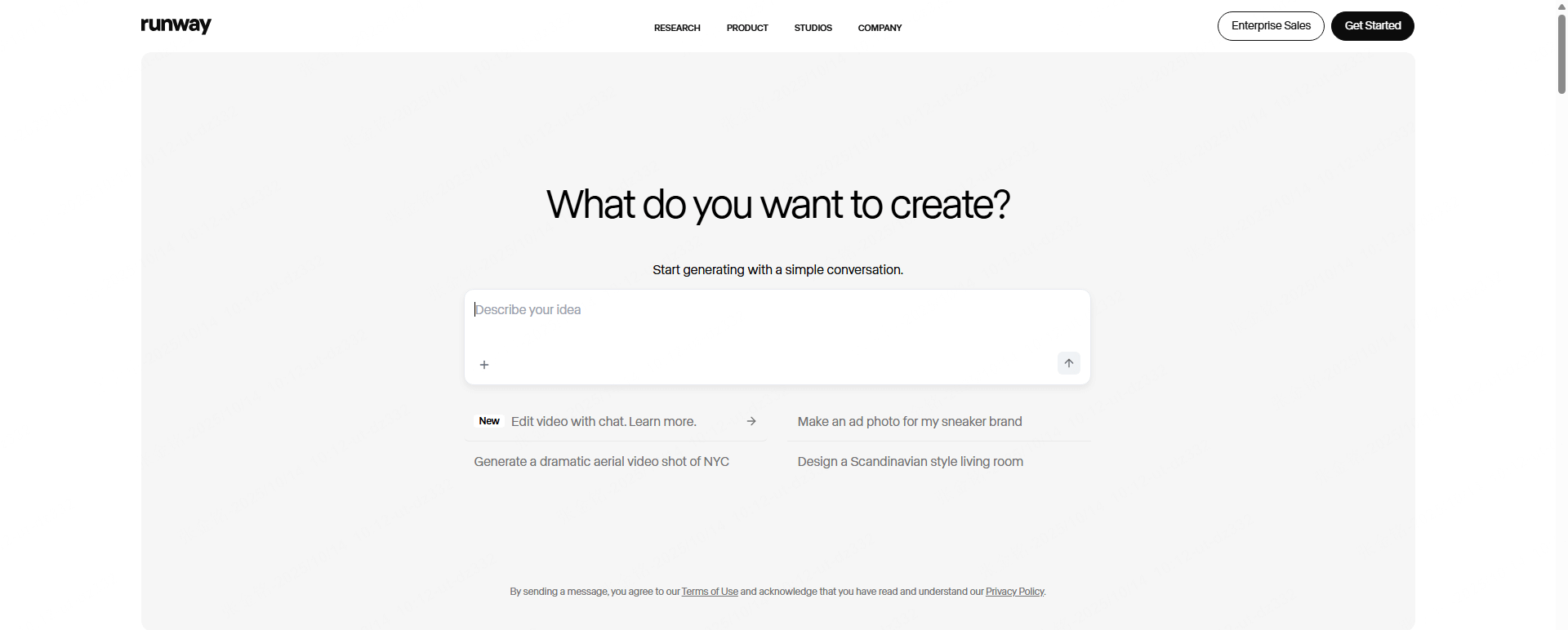
Runway's Gen-2 model gave me strong concept visuals quickly. Its style leans more artistic than realistic. Sometimes that's exactly what I want—something expressive rather than documentary style.
Out of everything, Runway's Motion Tracking is gold. I used it to lock text and effects to moving objects, and it saved me hours of manual After Effects work.
Pros
- All-in-one AI creator
- Professional grade
- Fast rendering
Cons
- Video results sometimes look too "AI"
- Subscription gets expensive
6. Google Veo3 – Realistic Output & Natural Audio
Google took its time entering AI video—but Google Veo 3 is worth the wait. What makes it standout isn't flashy style, but believability.
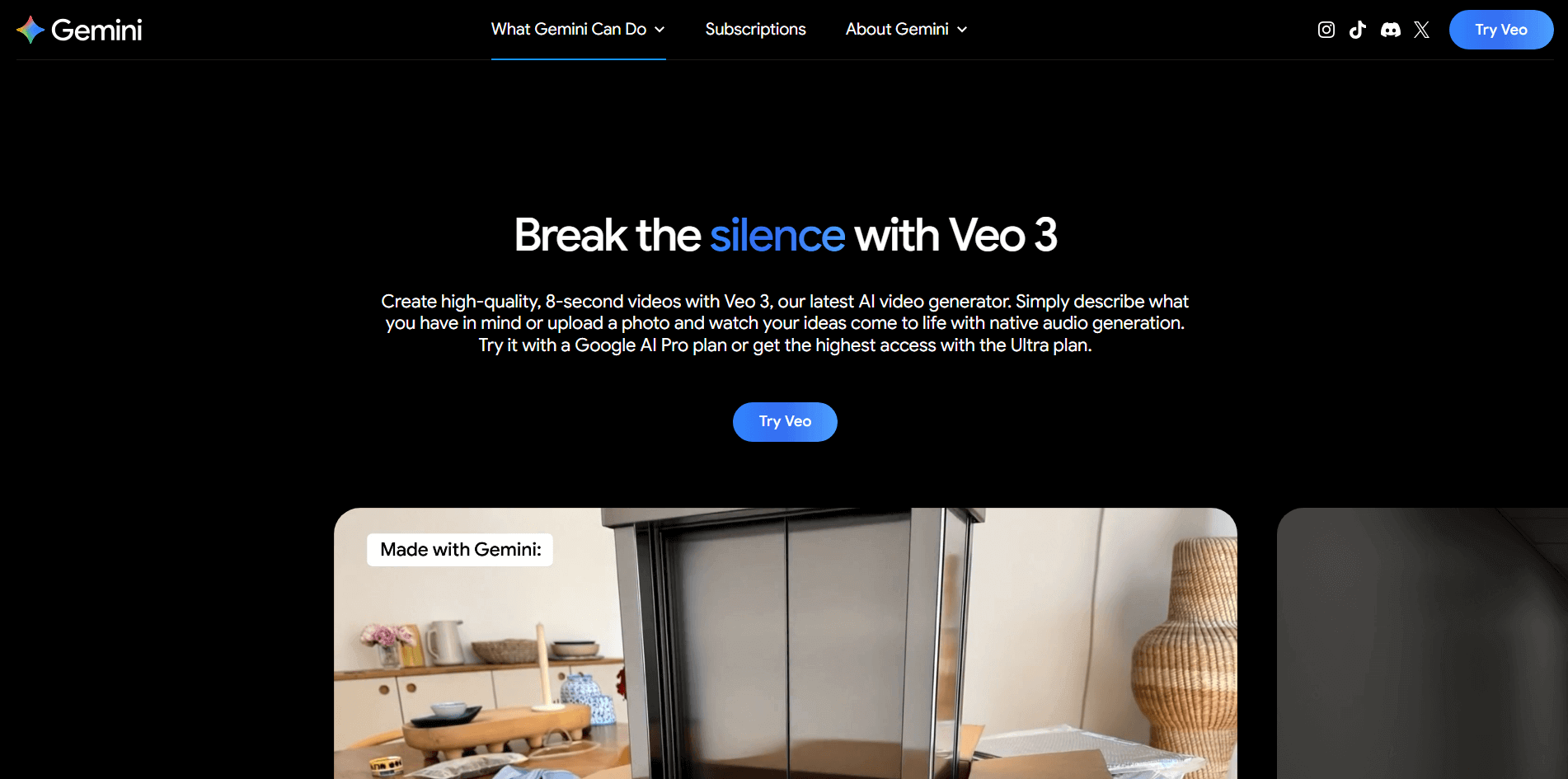
I generated a street scene in New York—a guy walking while checking his phone, cars passing behind him. The walk cycle was natural. No weird hand glitches. No broken legs. It was actually hard to tell it was AI.
If you upload audio, Veo 3 generates visuals that match the rhythm and emotion of the soundtrack. Try doing that with Luma AI (you can't).
Pros
- Hyper-real motion
- Good camera tracking
- Audio-matched video generation
Cons
- Hard to access outside Gemini ecosystem
- Not beginner-friendly
7. Sora 2 – Hyper Realism & Physics Simulation
Sora 2 is OpenAI's beast — it simulates real-world physics, making it the most immersive storyteller.
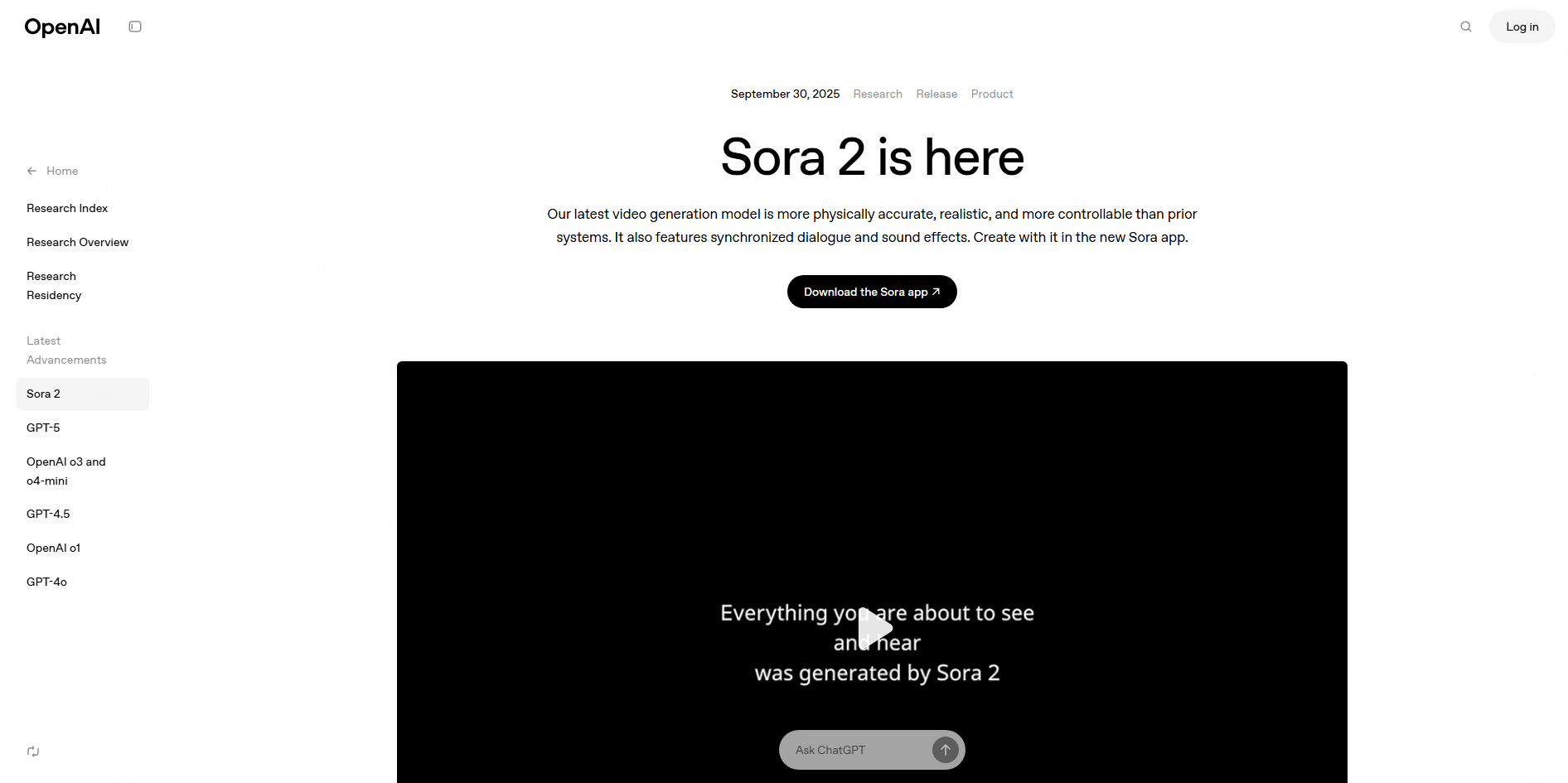
Unlike most Luma AI alternatives, which lean on 3D geometry (like Luma AI NeRF models), Sora 2 focuses on physics-based realism. The shadows, particle motion, and natural rhythm of action make it feel like something shot on a camera, not rendered by a model.
It's also surprisingly good at syncing with ambient or background sounds, which helps you build story-driven AI shorts that feel cinematic.
Pros
- Best realism
- Accurate physics
- Emotional visuals
Cons
- Still invite-only for most users
- Requires strong prompting
8. Pika – My Choice for Playful Effects
Pika might not aim for Sora's realism, but that's exactly why I love it. If you're aiming for short, shareable, trendy clips, Pika is perfect. For creators looking to explore similar tools, check out some Pika Art alternatives.
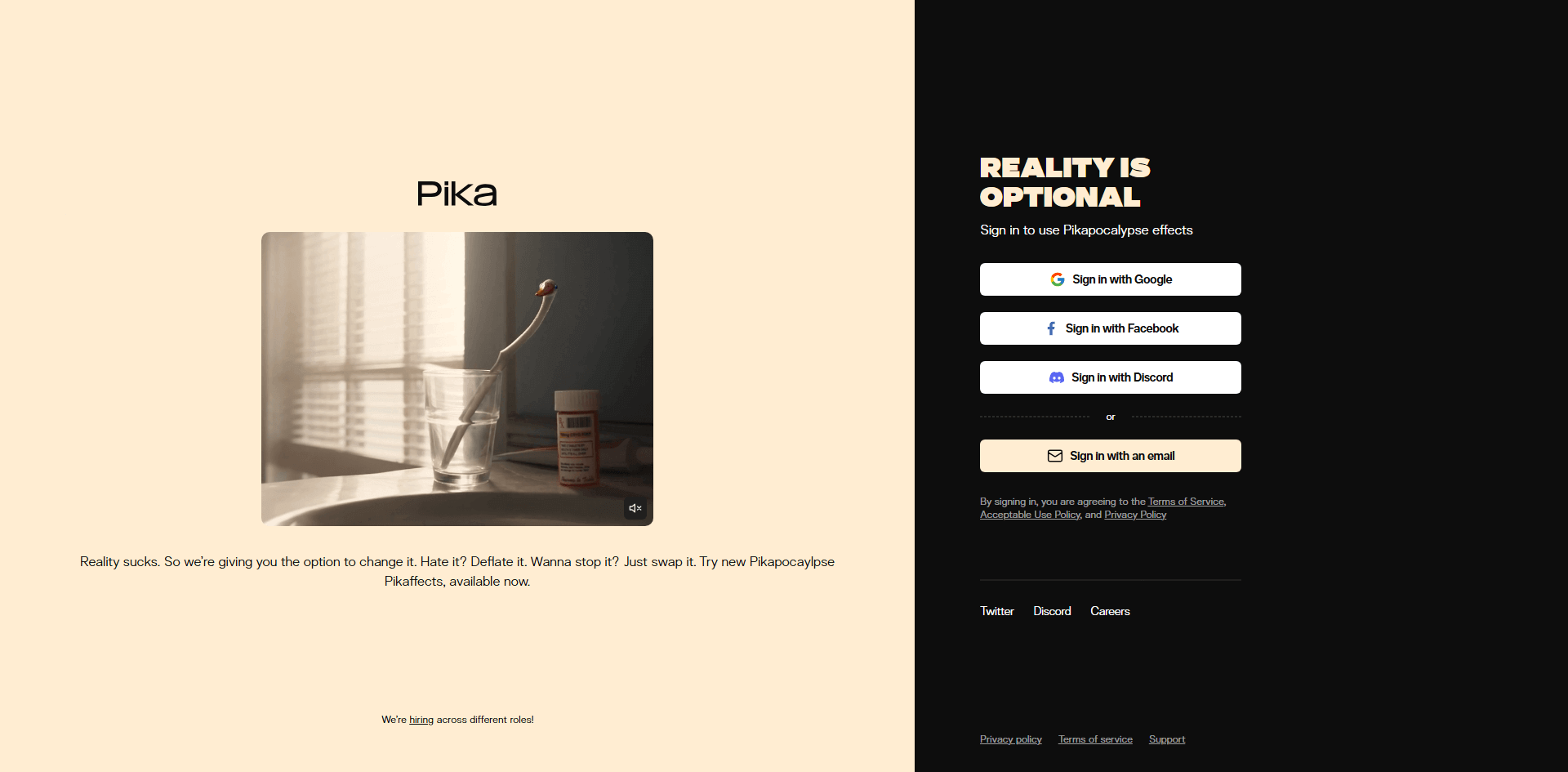
I used Pika for a quick prompt: "Golden retriever wearing sunglasses skateboarding by the beach, cinematic lighting." In under 60 seconds, it gave me a 5-second clip that looked straight out of a viral TikTok edit. The motion felt smooth, lighting looked believable, and even the fur details reacted to the wind.
You can easily remix, loop, or stylize your video with a few clicks. Pika makes experimentation fun. I found myself creating one short after another — something that rarely happens with heavier AI tools like Runway.
Pros
- Fun effects
- Fast output
- Good for ads & TikTok
Cons
- Not ideal for realism
- Short clip limit
9. Pollo AI – Best for Character Animation
If you do storytelling, brand mascots, explainer videos—Pollo is awesome.
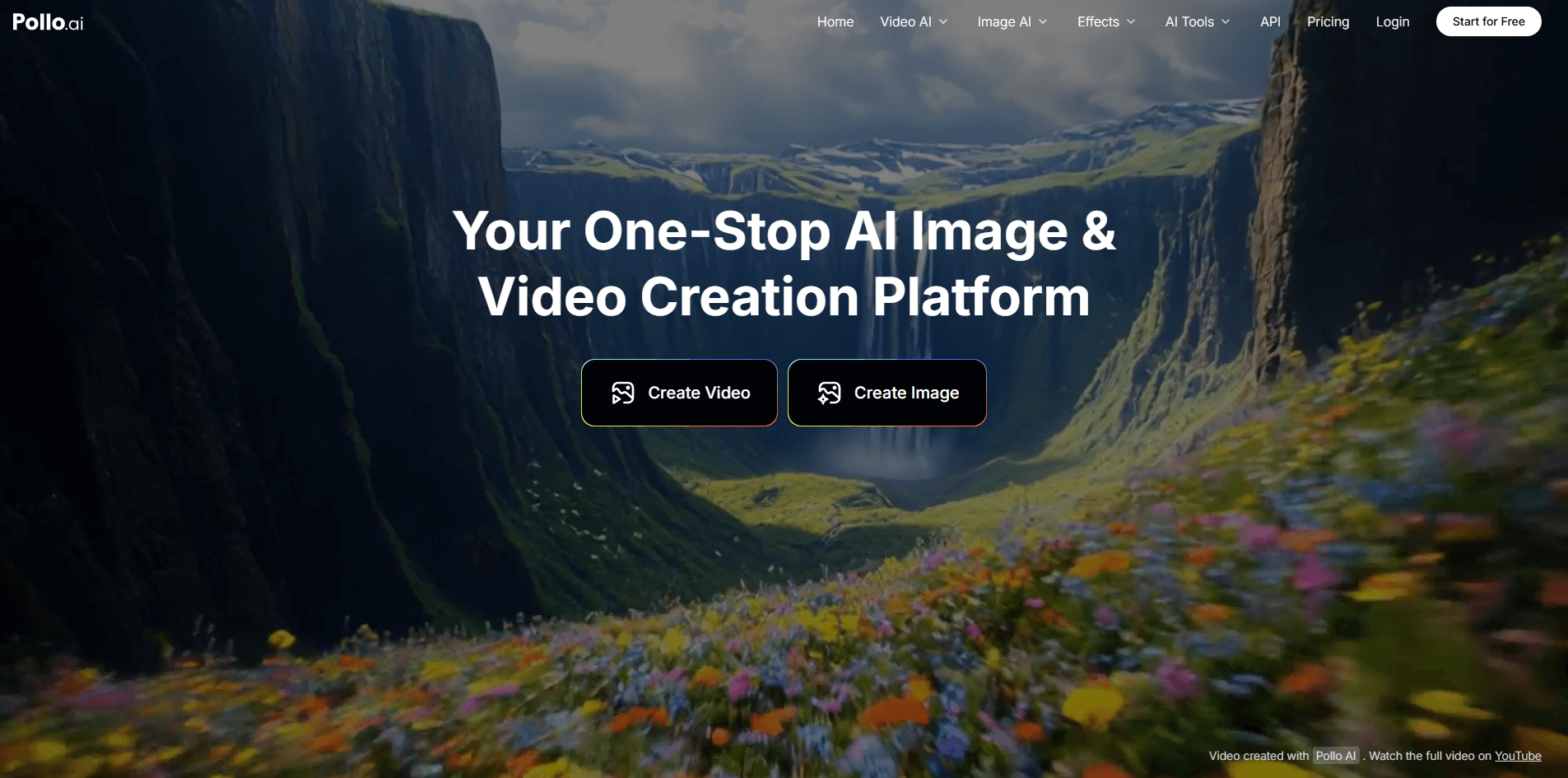
The lip-sync quality rivals professional-level tools. I tested it with my own face (just for fun) and found it shockingly accurate — every blink and head tilt matched the voice tone.
It's perfect for explainer videos, product introductions, or even fictional storytelling. I can easily imagine creators using it for branded social posts or character-driven narratives.
If you're looking for a Luma Labs alternative that specializes in face-based video storytelling, Pollo AI is the one.
Pros
- Great character control
- Ideal for storytellers
- Quick setup and easy UI
Cons
- Not for realism
- Lacks cinematic detail
10. Hailuo AI – Best Templates for Beginners
Hailuo AI is one of those rare tools that saves you from creative fatigue. If you're tired of writing prompts, it gives you hundreds of editable templates.
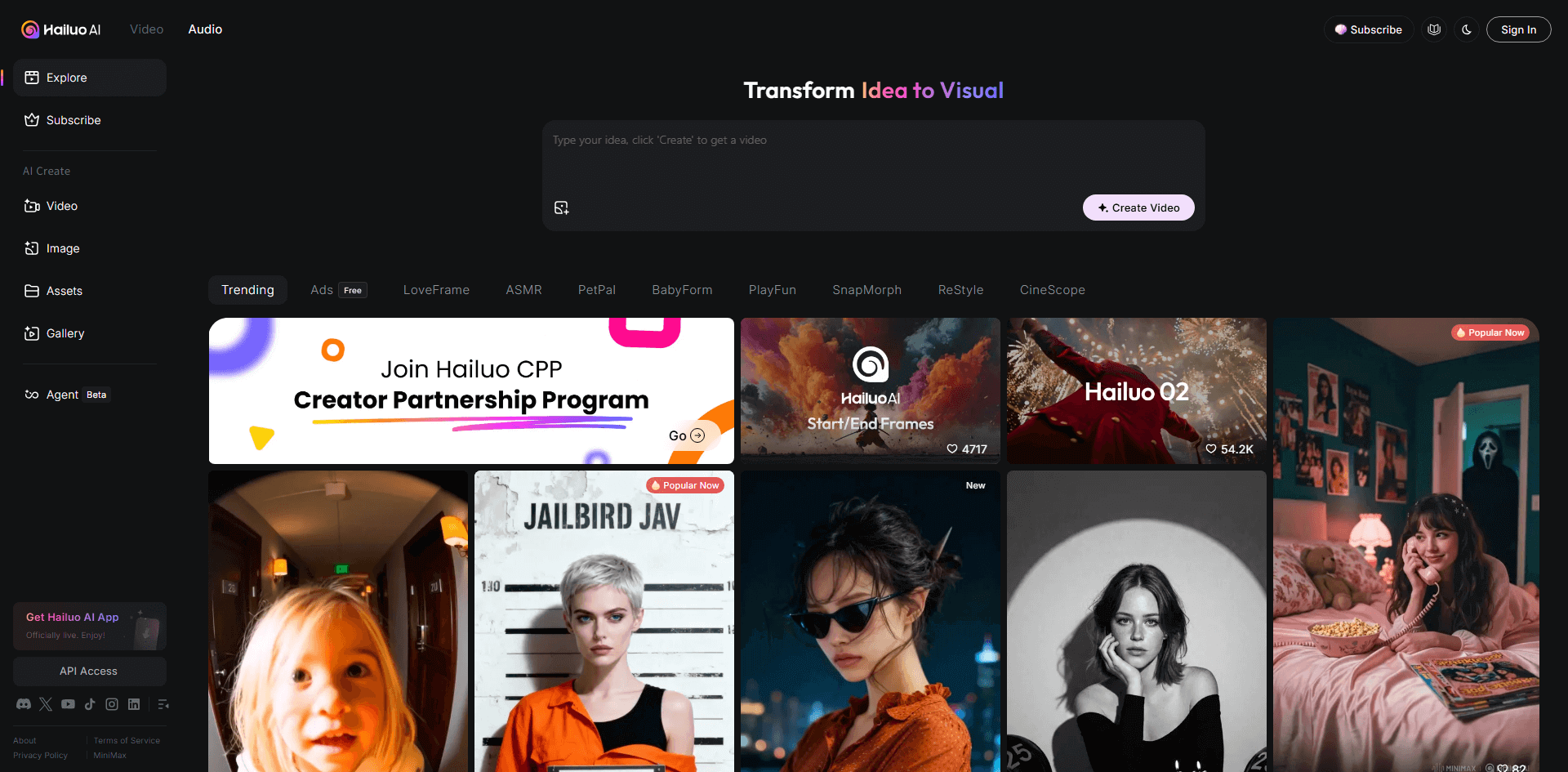
I used one called "Dream City Drive" and swapped in my own text. Within minutes, I had a professional-quality AI video with camera sweeps, depth transitions, and synced captions.
It also supports multiple languages, including auto-translated subtitles, which makes it excellent for global creators. While Luma AI focuses more on photorealism, Hailuo wins in speed and storytelling structure.
Pros
- Easy to use
- Massive prebuilt template library
- Great for quick branded content
Cons
- Limited camera motion
- Less realistic visuals
My Final Recommendation – Why LumeFlow AI Is Still My Top Choice
After testing everything, LumeFlow AI is still my top recommendation. Not only does it outperform Luma Labs in creative control, but it also offers AI video remixing, cinematic storytelling, image animation, and NeRF-like 3D quality — all in one platform.
If you're serious about elevating your AI video creation beyond Luma AI's NeRF limitations, definitely give LumeFlow AI a shot.





